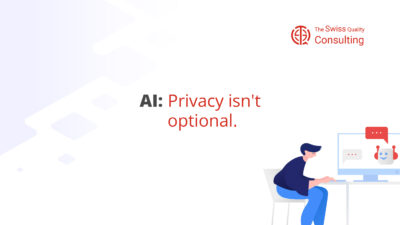Credibility signals are the building blocks of trust and authority in any field. They are essential for conveying expertise and establishing yourself as a thought leader. In the digital age, where information overload is rampant, credibility signals play an even more crucial role in differentiating yourself from the competition.
The Importance of Credibility in Thought Leadership
Credibility is the foundation upon which thought leadership is built. Without it, your ideas and insights will struggle to gain traction. Credibility signals act as trust indicators, assuring your audience that you have the knowledge and experience to back up your claims. In today’s fast-paced digital landscape, where misinformation can spread rapidly, credibility is your most valuable asset.
Thought leaders who possess credibility are not only respected but also sought after for their expertise. They become go-to resources for information and insights, attracting a loyal following and expanding their influence within their respective fields.
Types of Credibility Signals
Credibility signals come in various forms, each contributing to your overall reputation as a thought leader. Some of the most effective signals include:
- Expertise: Demonstrating your in-depth knowledge and experience in your field through publications, presentations, industry awards, and participation in relevant committees or boards.
- Social Proof: Showcasing testimonials, endorsements, and positive reviews from satisfied clients or customers. This can include case studies, client success stories, and social media mentions.
- Thought Leadership Content: Consistently producing high-quality content that offers valuable insights and solutions to your target audience. This can take the form of blog posts, articles, white papers, eBooks, webinars, and podcasts.
- Personal Branding: Crafting a strong personal brand that aligns with your expertise and values. This includes your online presence, professional bio, and communication style.
- Networking: Building relationships with other thought leaders and influencers in your industry. Collaborate on projects, participate in online discussions, and attend industry events to expand your network.
- Education and Certifications: Highlighting relevant degrees, certifications, and ongoing professional development demonstrates your commitment to staying at the forefront of your field.
Leveraging Credibility Signals for Business Success
Credibility signals are not just about personal recognition; they are also powerful tools for business success. When you establish yourself as a credible thought leader, you attract more clients, customers, and partners. Your expertise becomes a magnet for opportunities, opening doors to speaking engagements, consulting projects, and collaborations.
Moreover, credibility can enhance your brand’s reputation, leading to increased customer loyalty and trust. By consistently delivering on your promises and exceeding expectations, you solidify your position as a reliable and trustworthy authority.
Building Credibility in the Digital Age
In the digital age, building credibility requires a multi-faceted approach. It’s not enough to simply have the expertise; you must also communicate it effectively through various channels. This includes:
- Social Media: Establishing a strong presence on relevant social media platforms and sharing your insights with your audience. Engage in conversations, respond to comments and questions, and participate in industry groups.
- Content Marketing: Creating and distributing valuable content that showcases your expertise and addresses the needs of your target audience. Utilize SEO strategies to ensure your content reaches the right people.
- Public Speaking: Speaking at industry events and conferences to share your knowledge and build your reputation. Seek out opportunities to present your ideas and engage with other thought leaders.
- Networking: Attending industry events and conferences to connect with other thought leaders and potential clients. Build relationships, exchange ideas, and explore collaboration opportunities.
- Influencer Marketing: Partnering with influencers in your industry to amplify your message and reach a wider audience. Identify influencers whose values align with yours and collaborate on content or campaigns.
Measuring the Impact of Credibility Signals
To ensure your credibility-building efforts are effective, it’s important to measure their impact. Track metrics such as website traffic, social media engagement, lead generation, and brand mentions to gauge the effectiveness of your strategies. By analyzing this data, you can refine your approach and focus on the credibility signals that resonate most with your audience.
In conclusion, credibility signals are indispensable tools for establishing yourself as a thought leader in the digital age. By leveraging these signals effectively, you can build trust, enhance your reputation, and open doors to new opportunities. Remember, credibility is not a one-time achievement but an ongoing process that requires continuous effort and dedication.
#Credibility #ThoughtLeadership #Authority #Expertise #DigitalAge























